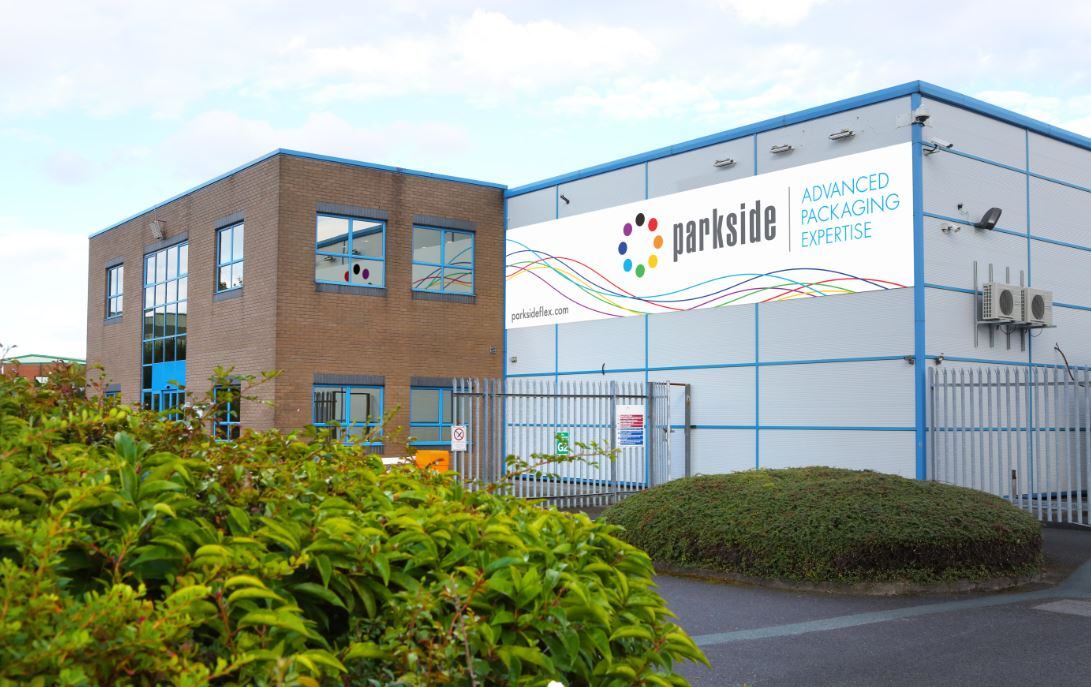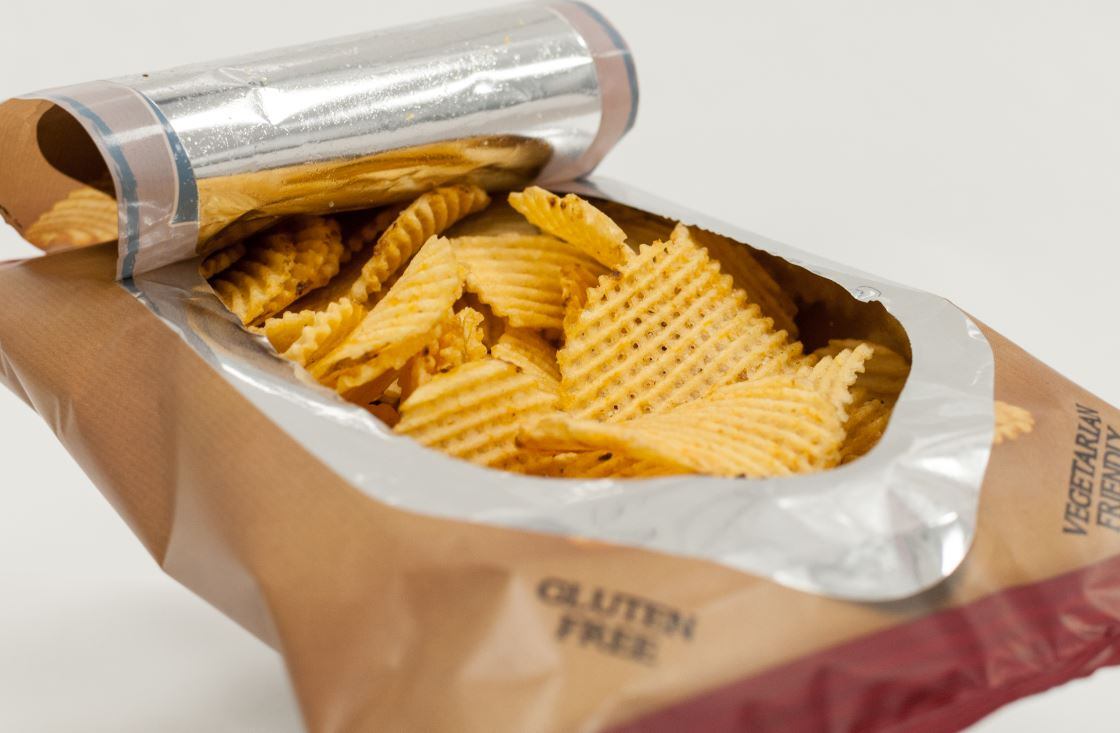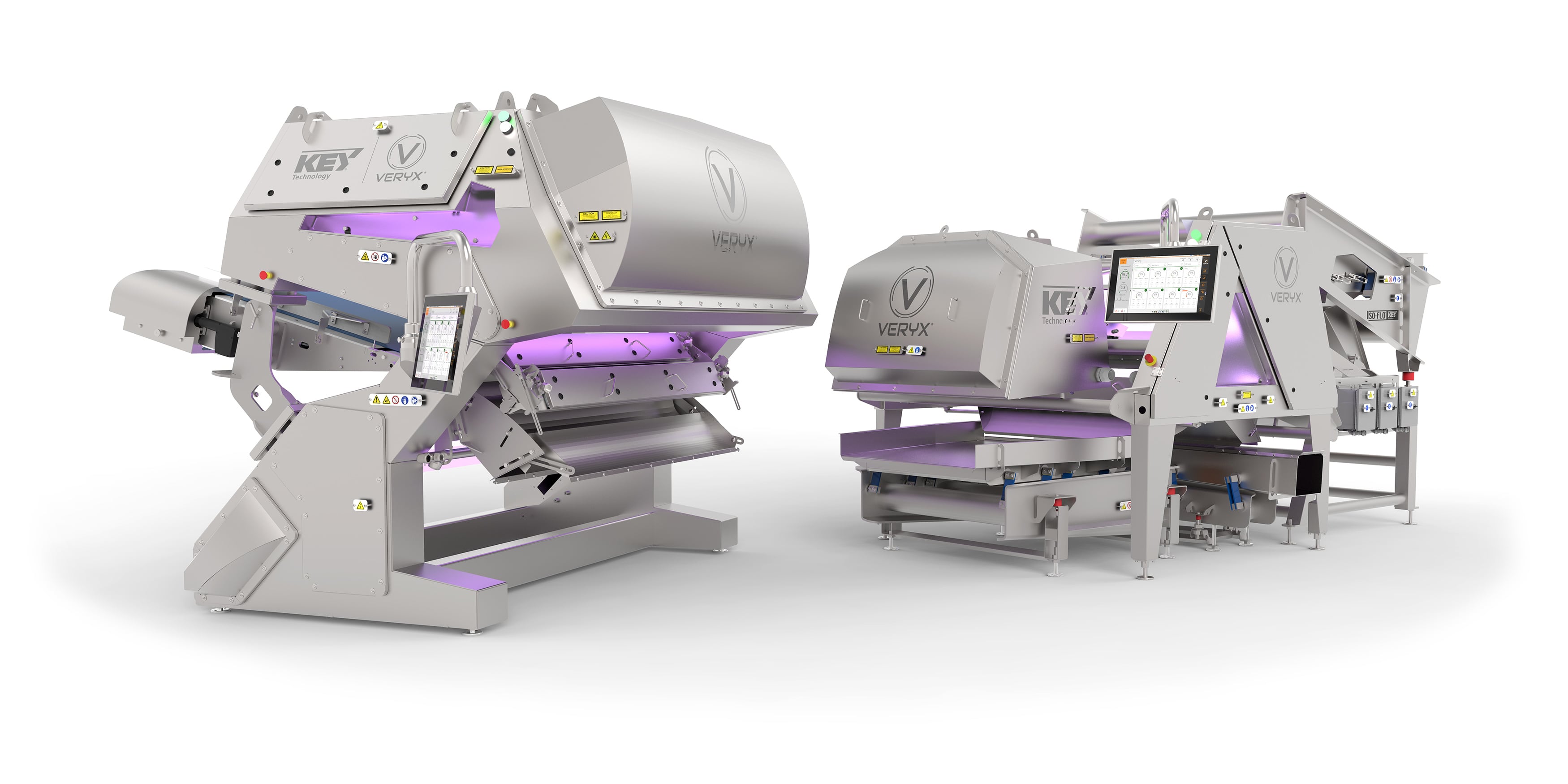The packaging manufacturer in Yorkshire, UK, specializes in printing, lamination, laser, thermal and sustainable packaging for the food and drink industry, among others, and says the laser will create ‘new business opportunities’ for the company.
Reclose pack designs

The technology enables laser scoring across two sides of a single film or laminate to create easy-open and reclose pack designs and can be used on applications from flexible packaging to easy-peel vented lidding for ready meal packs.
Nick Smith, MD, Parkside, said the laser was purchased to support Parkside’s existing business and enable the company to grow in existing markets.
For example, one customer was an existing pack for Seabrook Crisps where the laser was integral to the laminated pack structure, rather than a label attached to the pack.
“Convenience continues to play a role in shaping consumption trends, which in turn affects the nature of packaging demanded by brands, retailers and food manufacturers,” said Smith.
“Anything that makes life easier for the consumer, whether it’s easy-open, portability or portioned food packs, means added pack functionality is key to improving the on-the-go consumer experience.
“Our new laser capability will allow us to meet the needs of the modern consumer.”
Second laser scribing machine
The laser technology, installed at the company’s Normanton facility in West Yorkshire, is the second laser scribing machine to be based at the UK site creating new jobs at the company.
The advantages of the machine include a controlled score depth at varying web speeds, precise and high quality score lines, and depths of any shape or size, to create easy-open features that tear along the score line.
“Our original laser investment only allowed us to scribe across one side of a substrate. This machine enables us to produce new opening designs that require two-side lasering,” said Jonathan Steele, key account development manager, Parkside.
“The laser allows us to create a tight tolerance between the front and back laser incisions, while offering improved efficiencies. All of this can be done without compromising the barrier properties required for the packed contents.”


